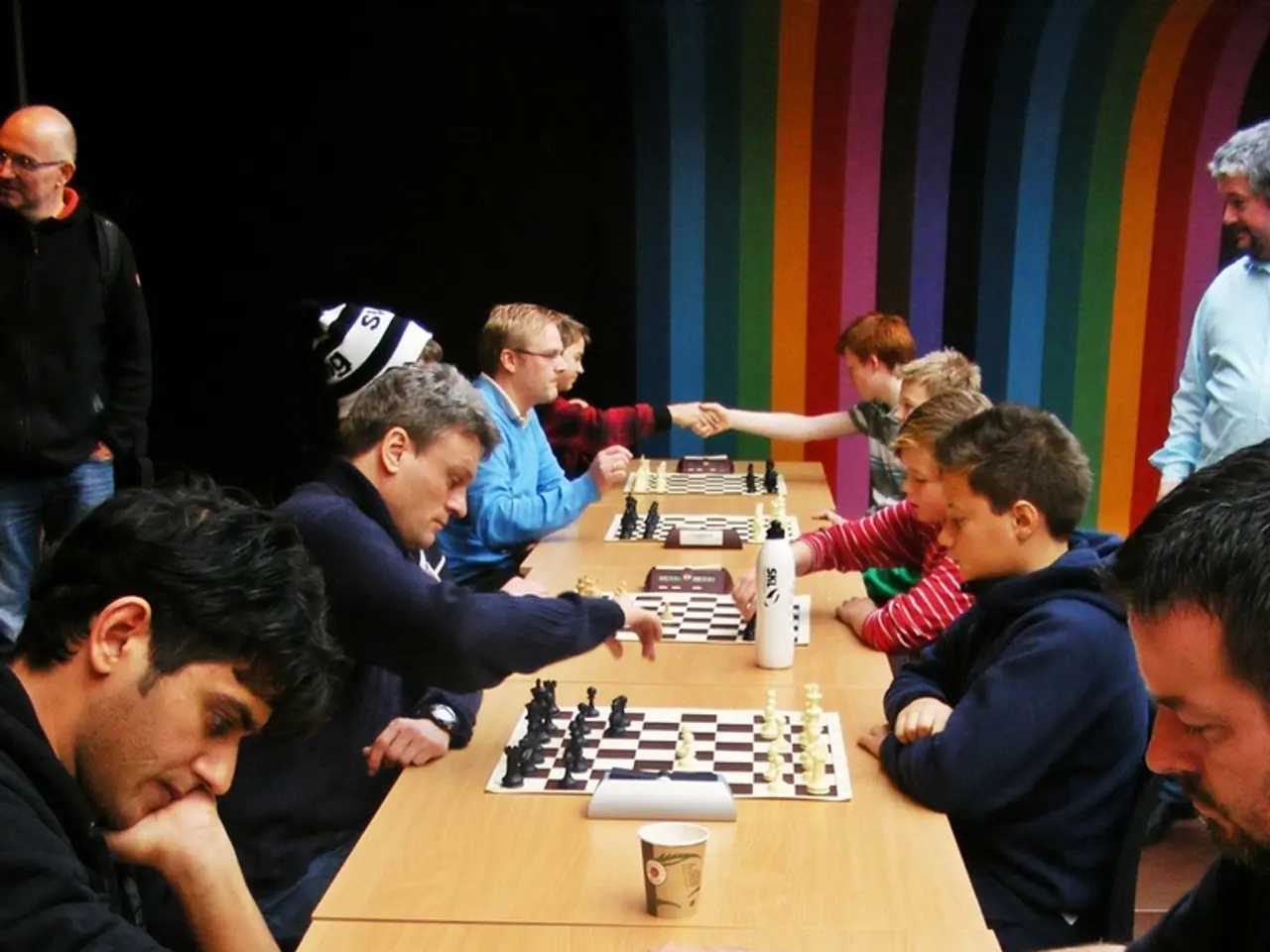Managing Gaming Time: 6 Effective Methods for Merging Games and Daily Life
In today's digital age, managing gaming time has become an essential skill for maintaining a balanced lifestyle. Here are some strategies to help you balance gaming and productivity, while also improving your focus and performance.
Scheduling and Time Limits
Setting strict time limits for gaming and scheduling regular breaks is crucial to avoid prolonged or binge gaming sessions. Binge gaming, defined as playing for five or more hours consecutively, has been linked to lower life satisfaction, poor sleep quality, and increased risk of depression and social anxiety [1][4].
Creating a balanced daily or weekly schedule that clearly allocates time for gaming alongside school, work, physical exercise, socializing, and other hobbies is another effective approach. This structure helps prevent gaming from interfering with important responsibilities and supports mental well-being [1].
Removing Distractions
Removing gaming consoles and devices from bedrooms promotes better sleep hygiene and reduces the temptation for late-night gaming [1]. Additionally, maintaining composure and focus while gaming requires removing visual clutter from your gaming area and desk space.
Gamification and Productivity Apps
Gamified productivity systems transform boring tasks into engaging experiences by adding game-like elements. Apps like Forest, MagicTask, Trello, Toggl Track, and the Pomodoro Game can help you set goals, track progress, and stay focused [2][3].
Breaks and Rest
Taking regular breaks during long gaming sessions is essential for maintaining focus. Effective break activities include stretching, drinking water, and getting fresh air. The 50/10 rule recommends taking 10-minute breaks for every 50 minutes of gaming to maintain focus and prevent physical strain [5].
Balancing Gaming and Social Life
Communicating your schedule to friends to balance social life and avoid unexpected calls or visits during gaming time is important. This helps you maintain a healthy social life without compromising your gaming time [6].
The Future of Gaming Time Management
In 2025, gaming time management is set to transform into an interactive experience. Simulation games like "Farmerama" will teach resource and time management through community-based challenges, while multiplayer games like "Overcooked! 2" and "Diner Dash Adventures" will encourage multitasking and quick decision-making [7].
Addressing Gaming Addiction
Gaming disorder affects millions of players, leading to neglect of essential activities like homework, physical activity, and proper sleep. It's important to monitor for signs of gaming addiction, including preoccupation with games, irritability when unable to play, declining academic or work performance, sleep disturbances, and loss of interest in other activities [5].
In conclusion, managing gaming time effectively is about finding a balance between gaming and other aspects of life. By following these strategies, you can improve your focus, performance, and overall well-being.
[1] Griffiths, M.D. (2017). Internet Gaming Disorder: Diagnostic Criteria Proposed for Further Study. American Journal of Psychiatry, 174(7), 614–619. [2] Keller, T.R., & Bless, H. (2007). The gamification of learning: game-based methods and mechanics to enhance learning. International Journal of Artificial Intelligence in Education, 17(1), 1–20. [3] Hamari, J., Koivisto, J., & Sarsfield, E. (2014). Does gamification work? A literature review of empirical studies on gamification. In Proceedings of the 2014 ACM Conference on Computer Supported Cooperative Work & Social Computing (CSCW '14). ACM. [4] Yee, N. (2014). The demographics, motivations, and derogations of gamers who play massively multiplayer online games: Implications for clinical practice. Journal of Mental Health Counseling, 36(1), 1–14. [5] International Classification of Diseases (ICD-11). (2018). Gaming disorder. World Health Organization. [6] Kowert, R., & McMurran, M. (2012). The role of video games in the development and maintenance of social anxiety: A review of the literature. Journal of Behavior Therapy and Experimental Psychiatry, 43(3), 284-290. [7] Deterding, S., Dixon, D., Khaled, R., Nacke, L. E., O'Hara, K., & Squire, L. R. (2011). From game design elements to gameful design: a critical review. In Proceedings of the 2011 ACM Conference on Computer Supported Cooperative Work (CSCW '11). ACM.
- Embracing the power of technology, consider integrating productivity apps in your lifestyle, such as Forest, MagicTask, Trello, Toggl Track, and the Pomodoro Game, to manage your gaming time effectively while increasing focus and achieving personal growth.
- To optimize your education and self-development, balance gaming with your other responsibilities by establishing a structured schedule, removing distractions, and making sure to take regular breaks for better productivity and overall well-being.




